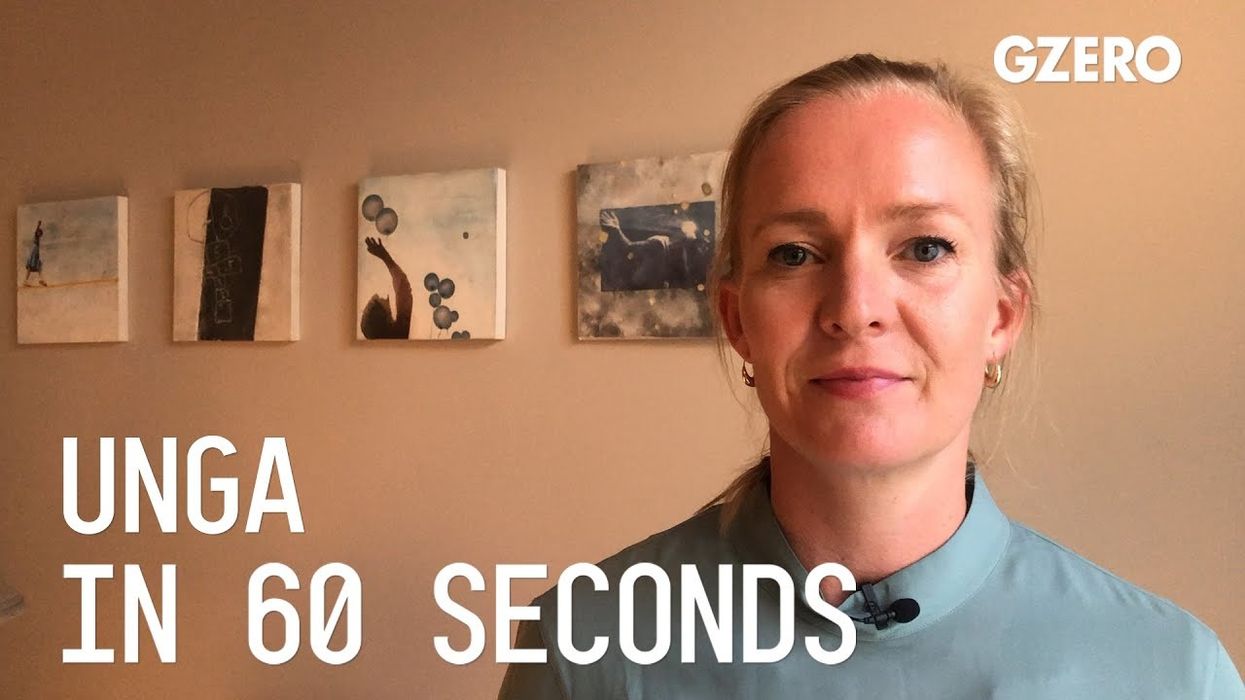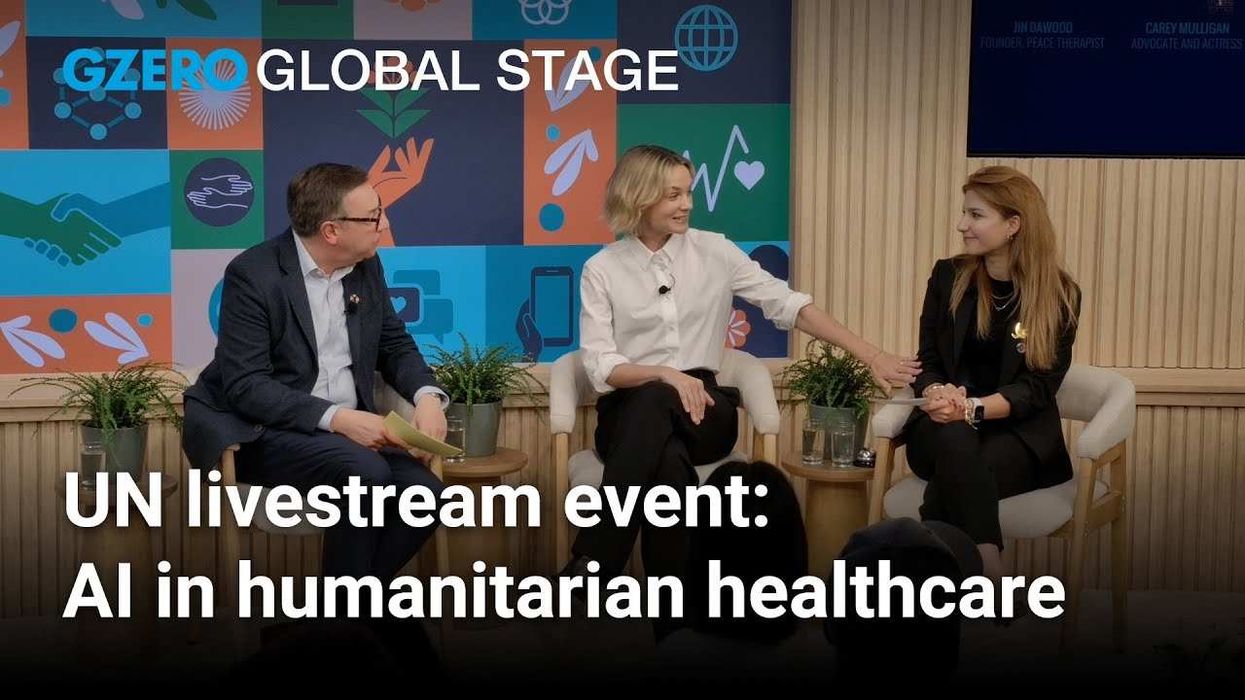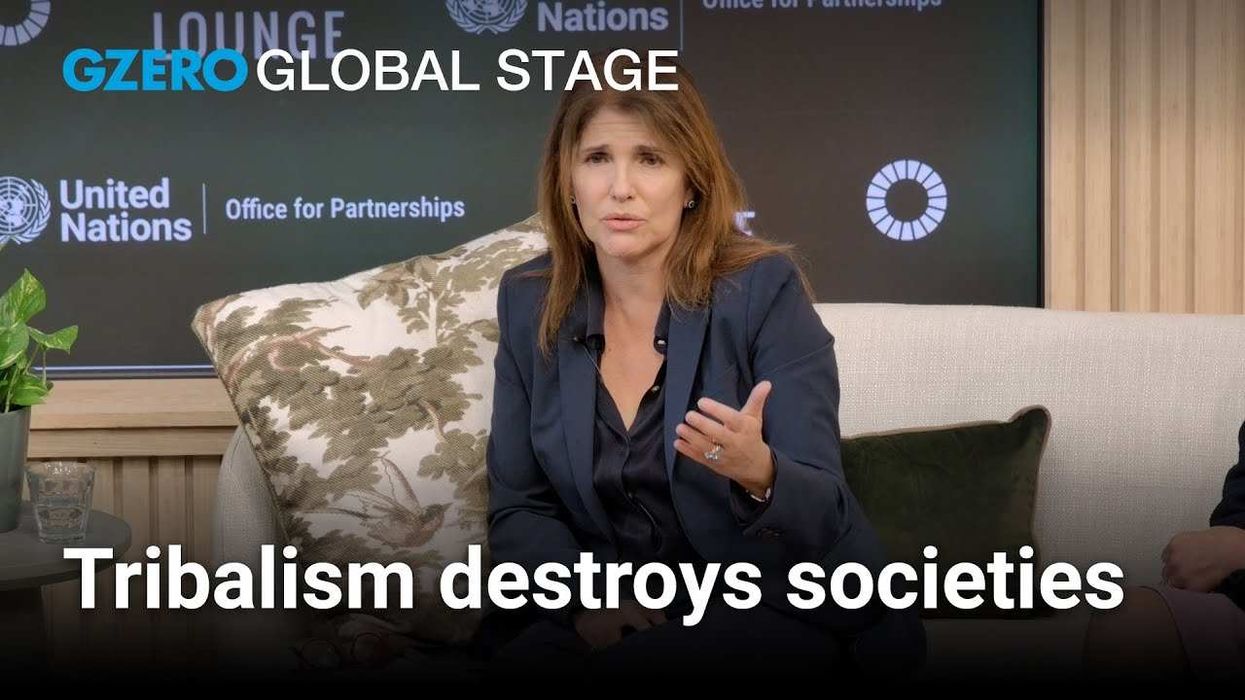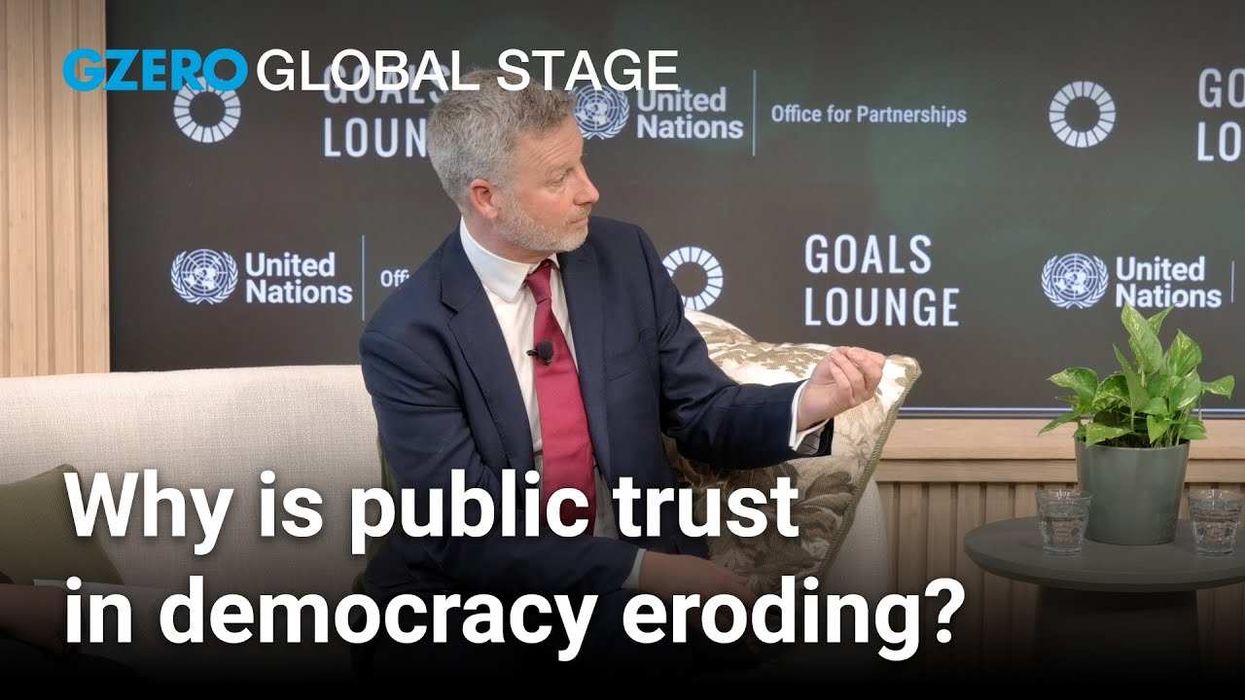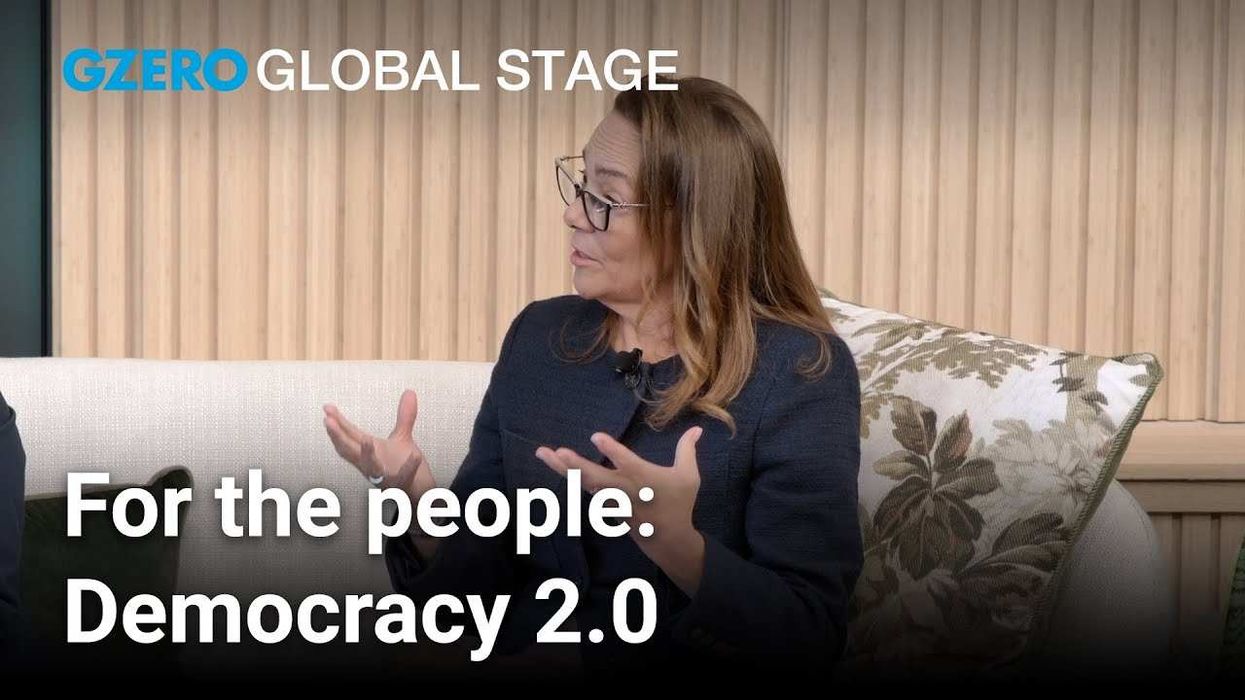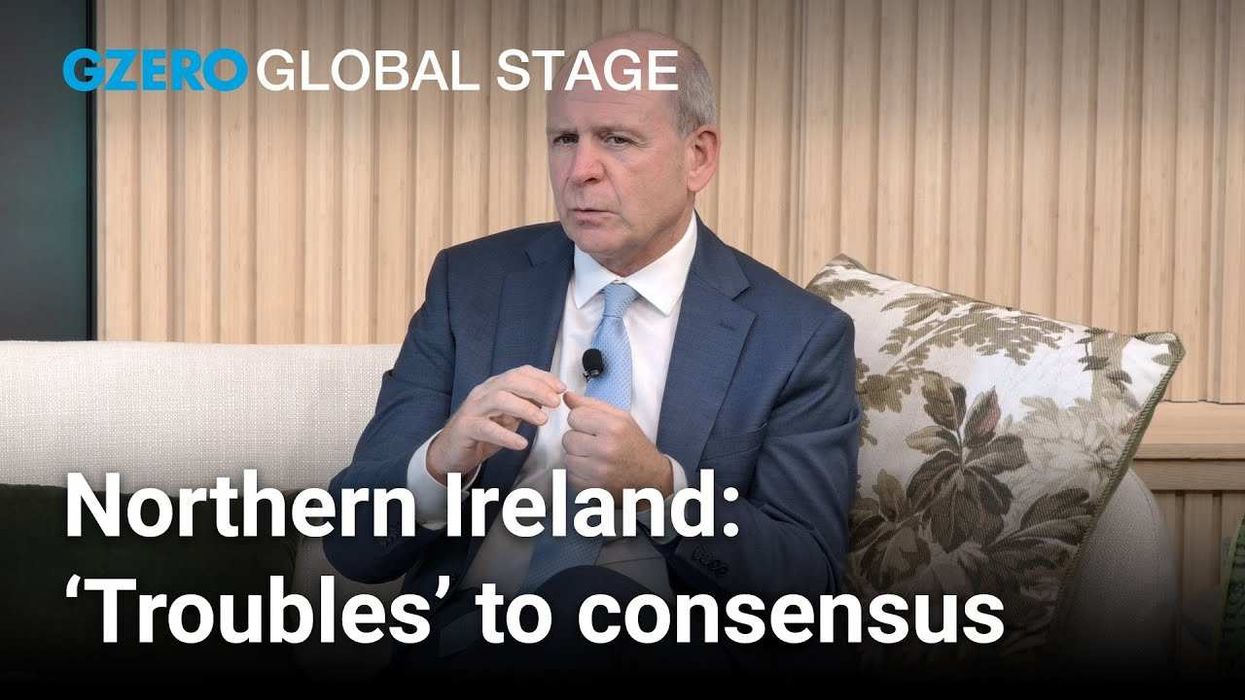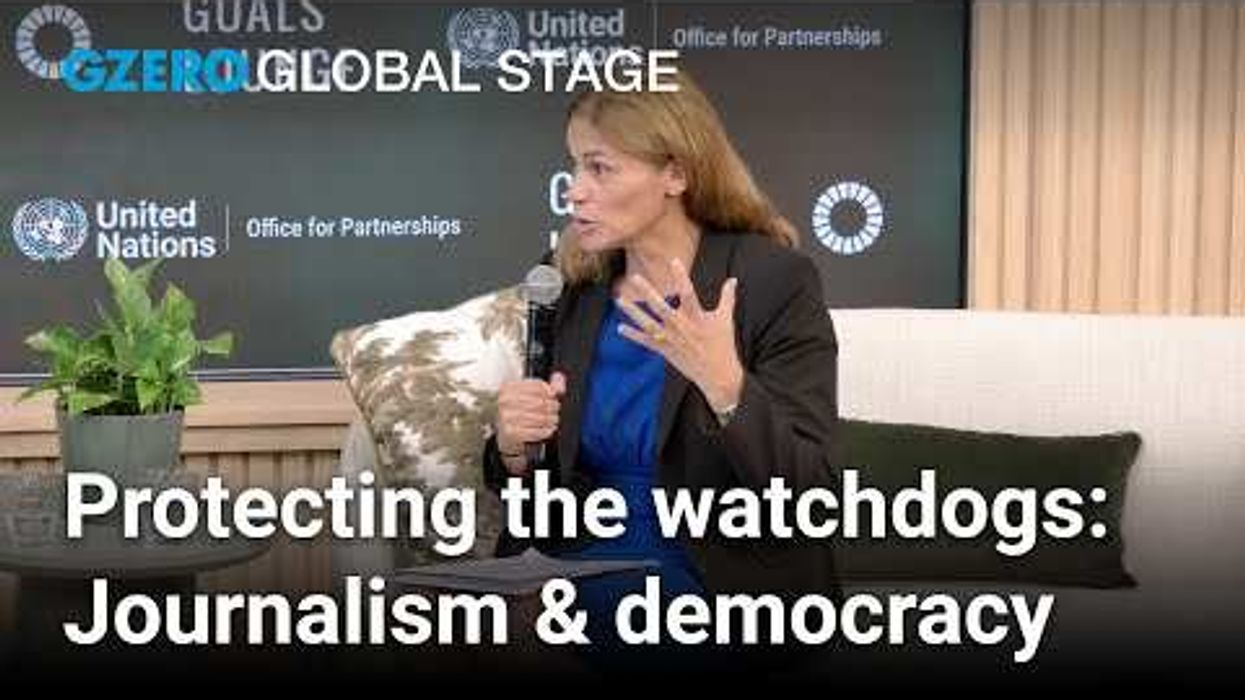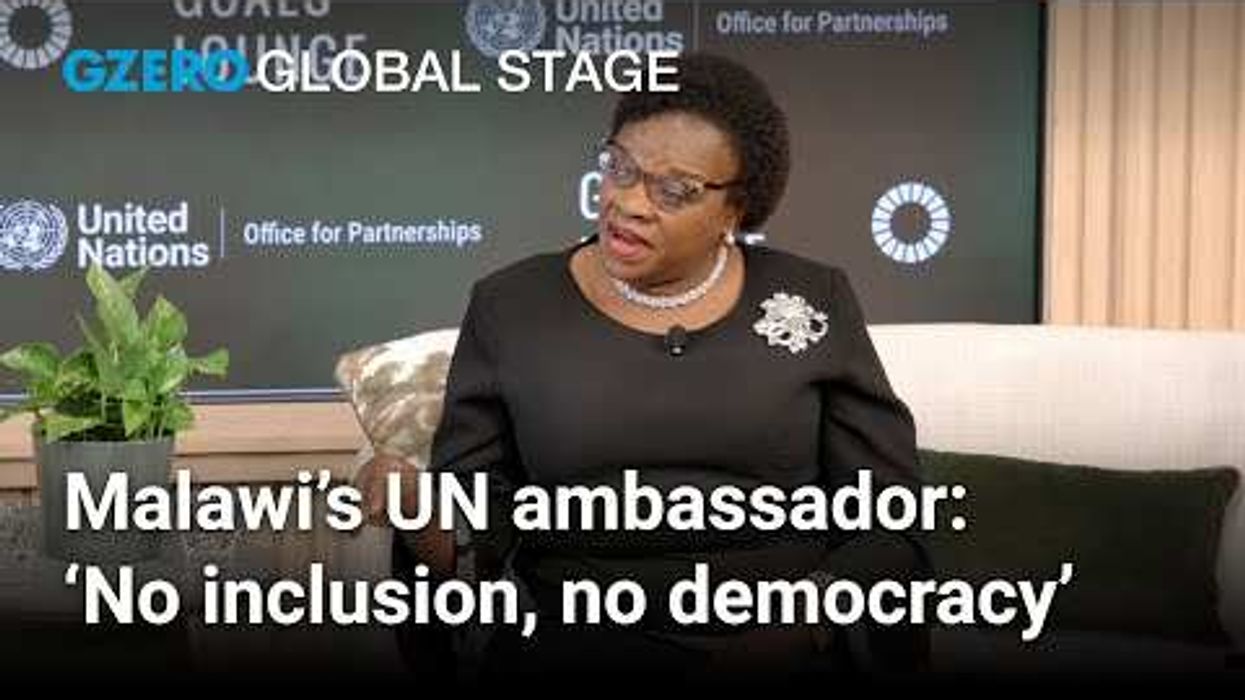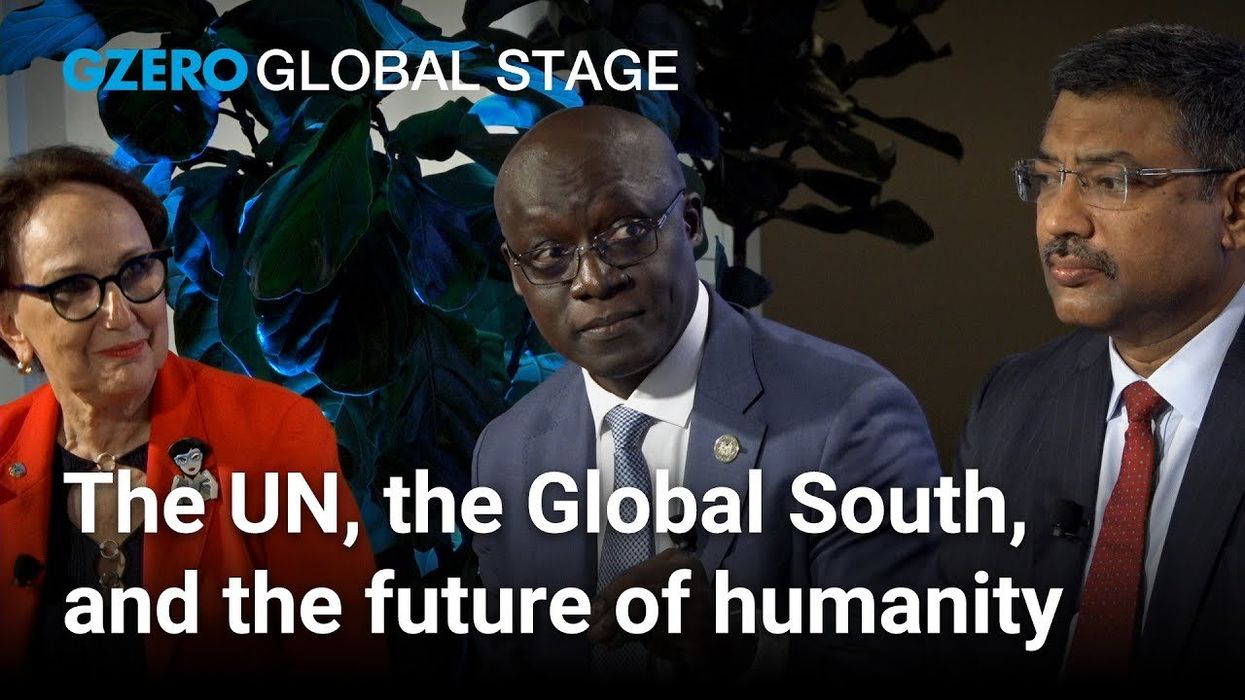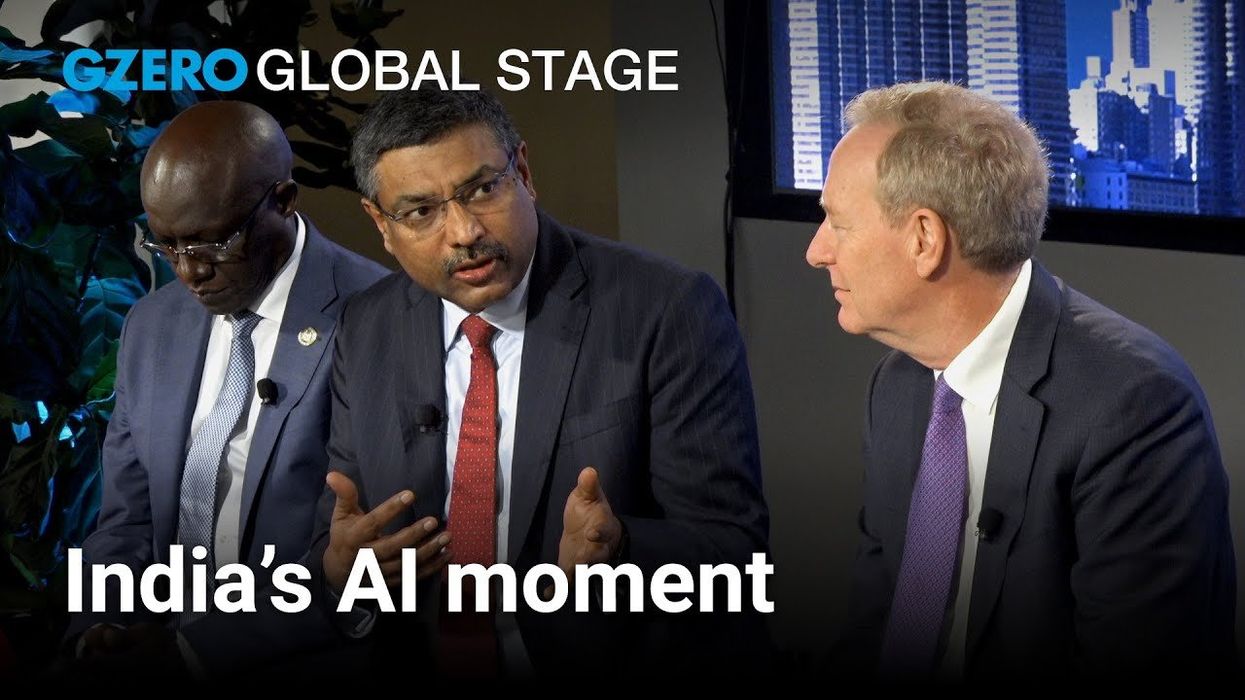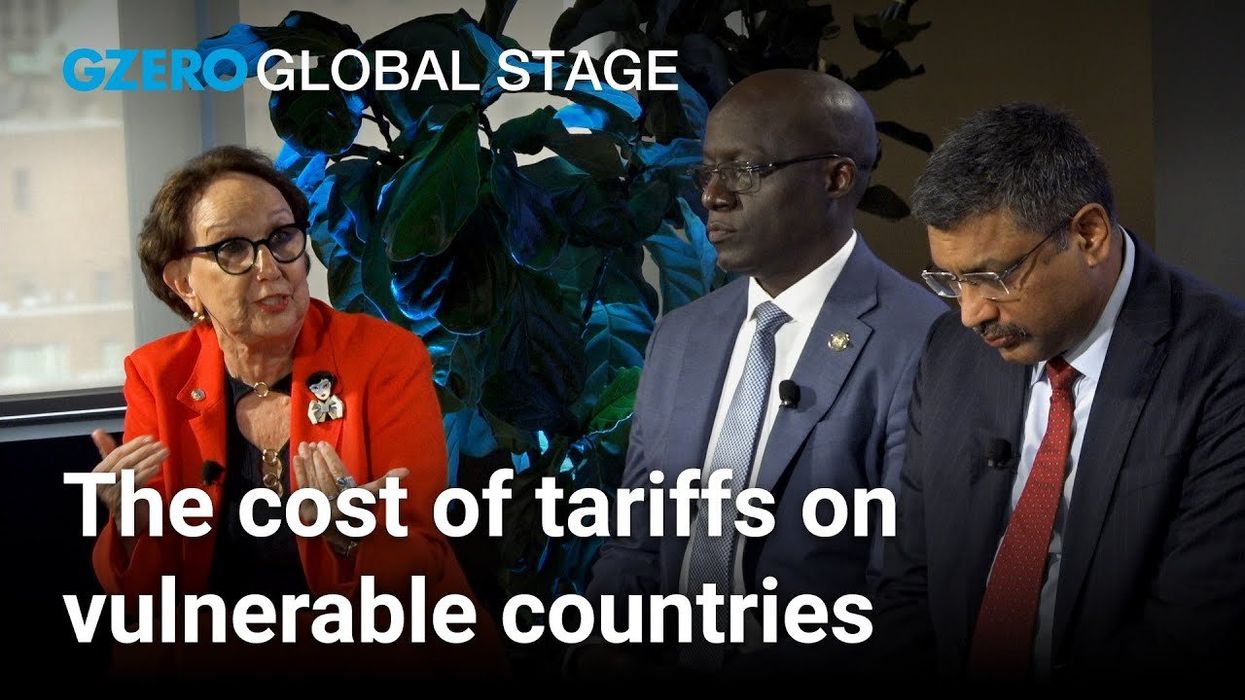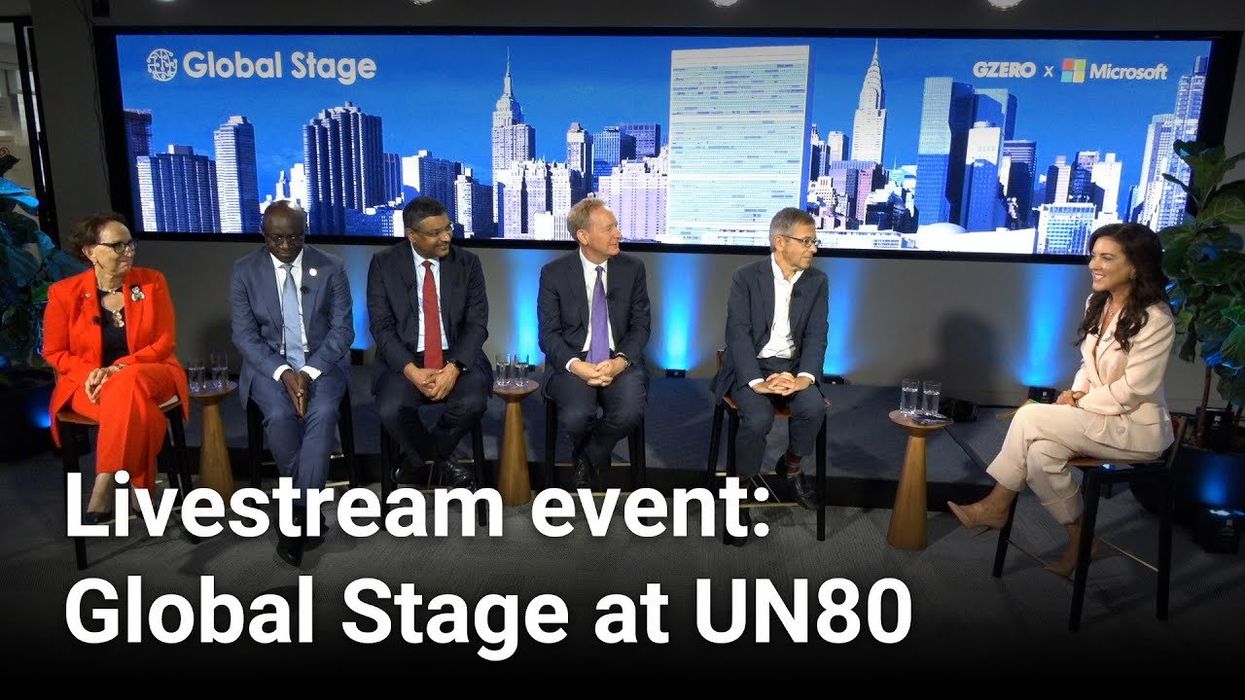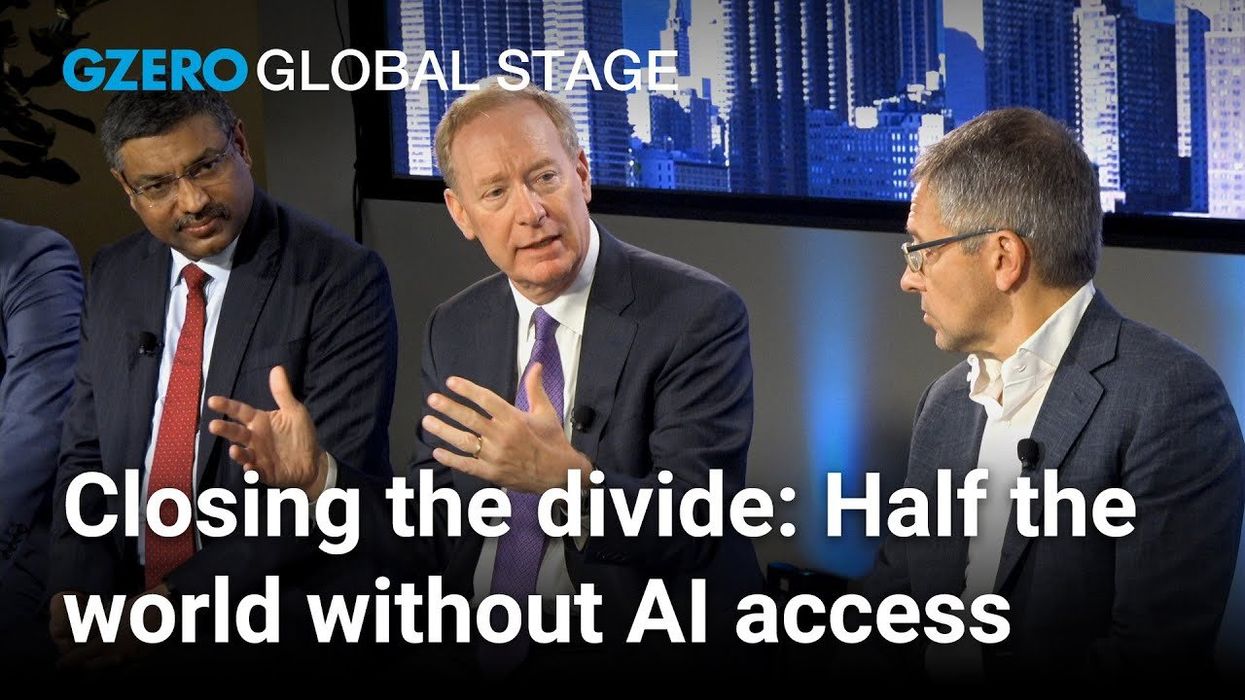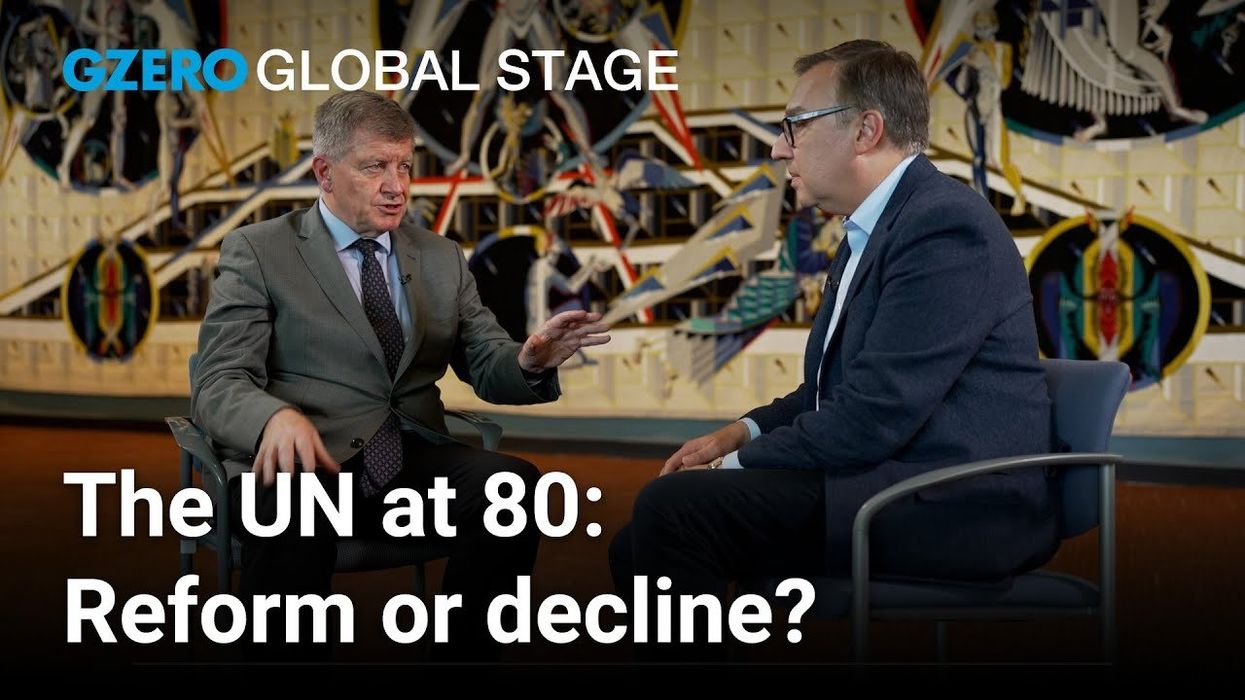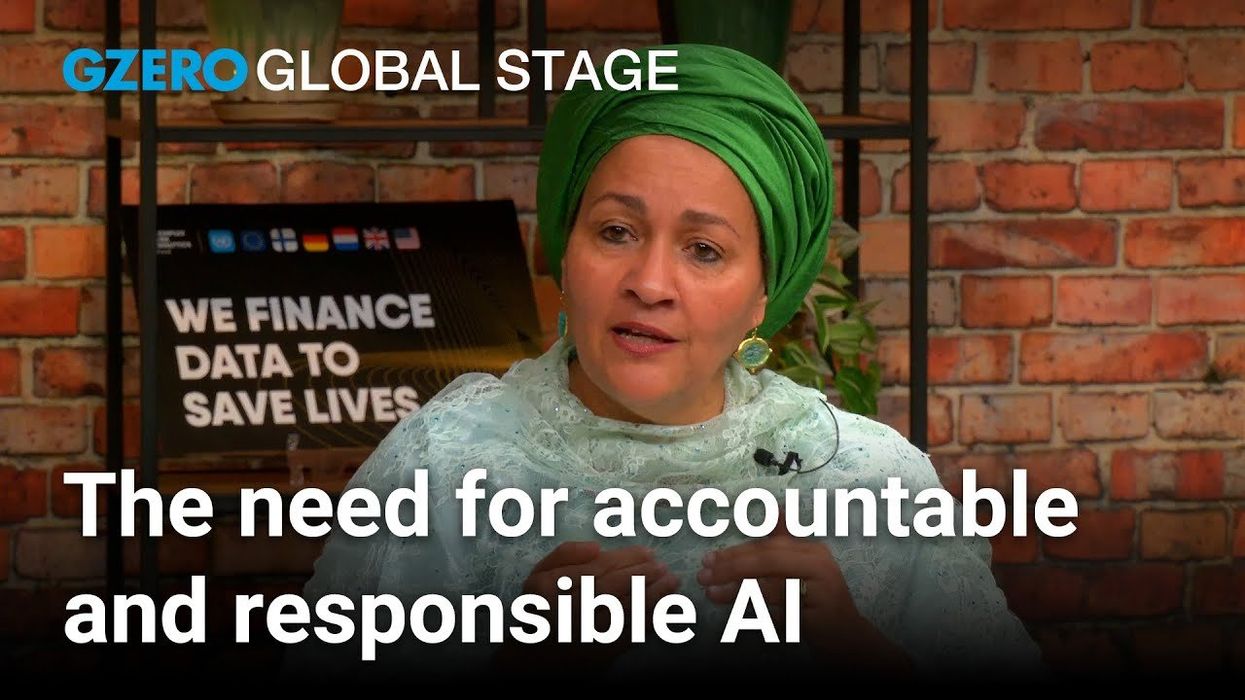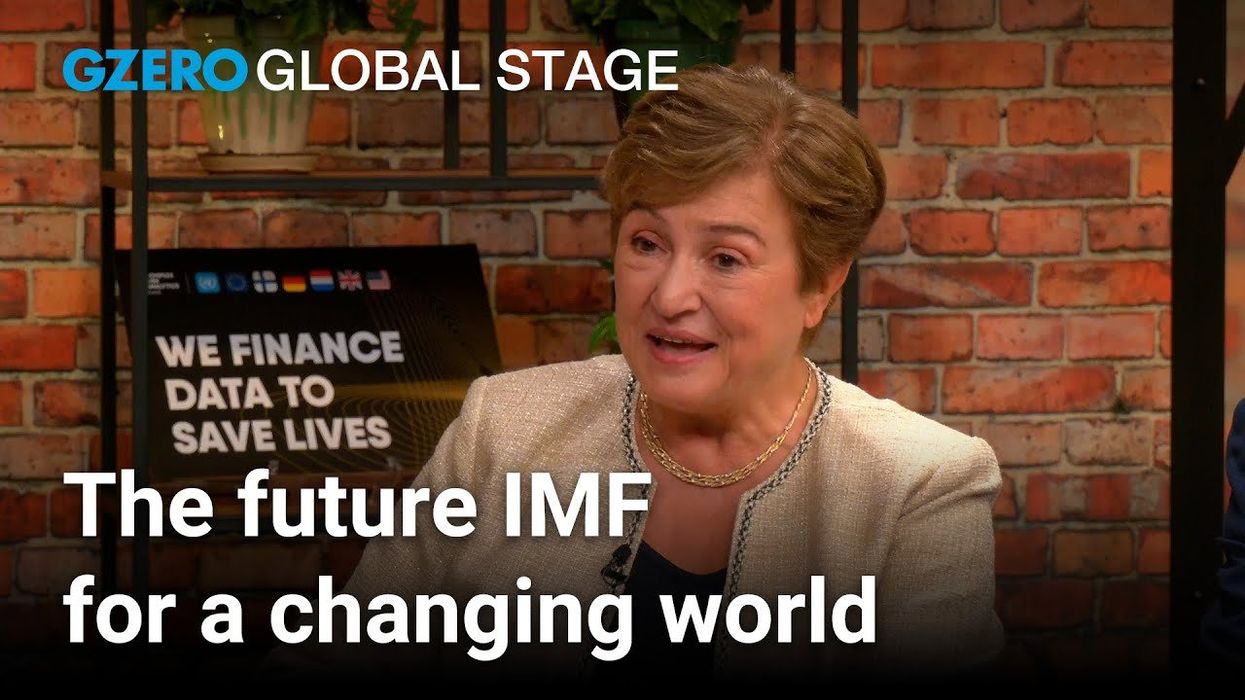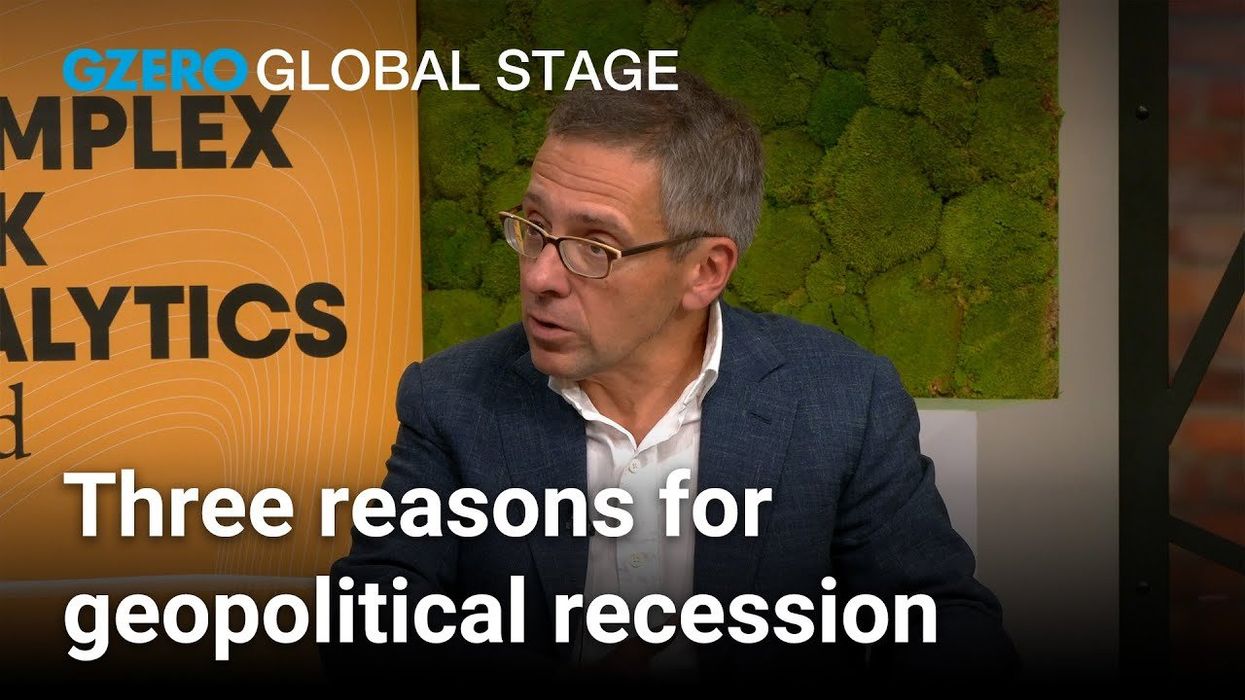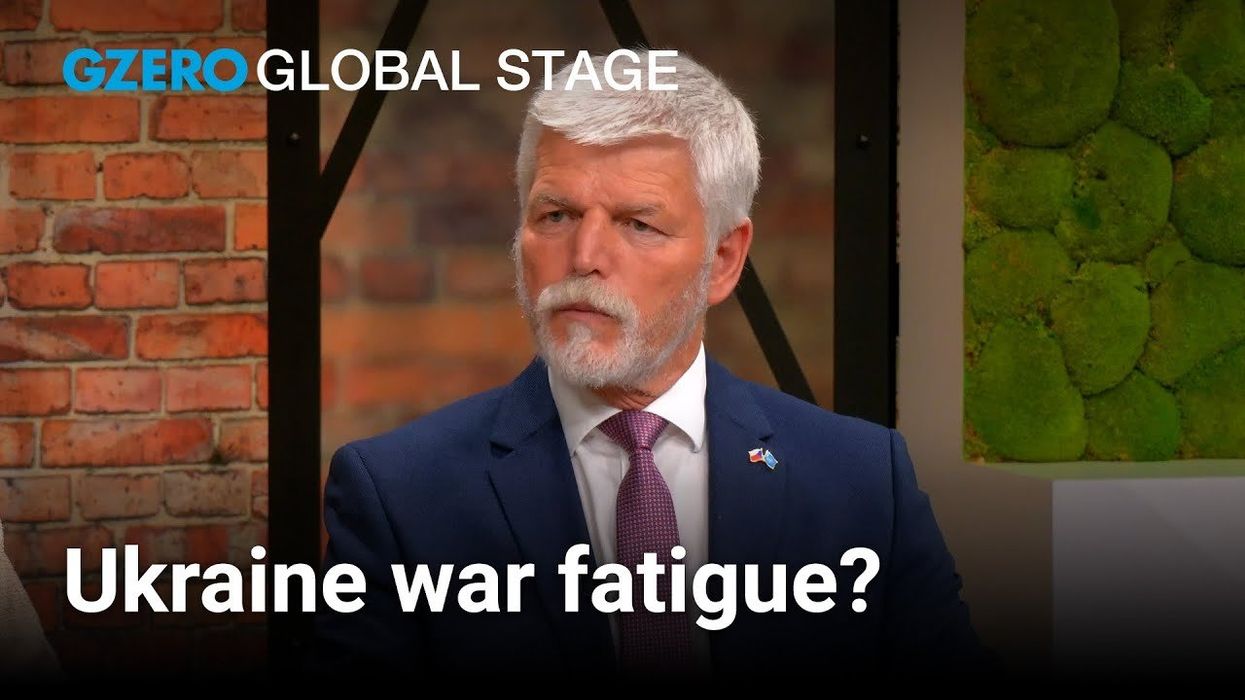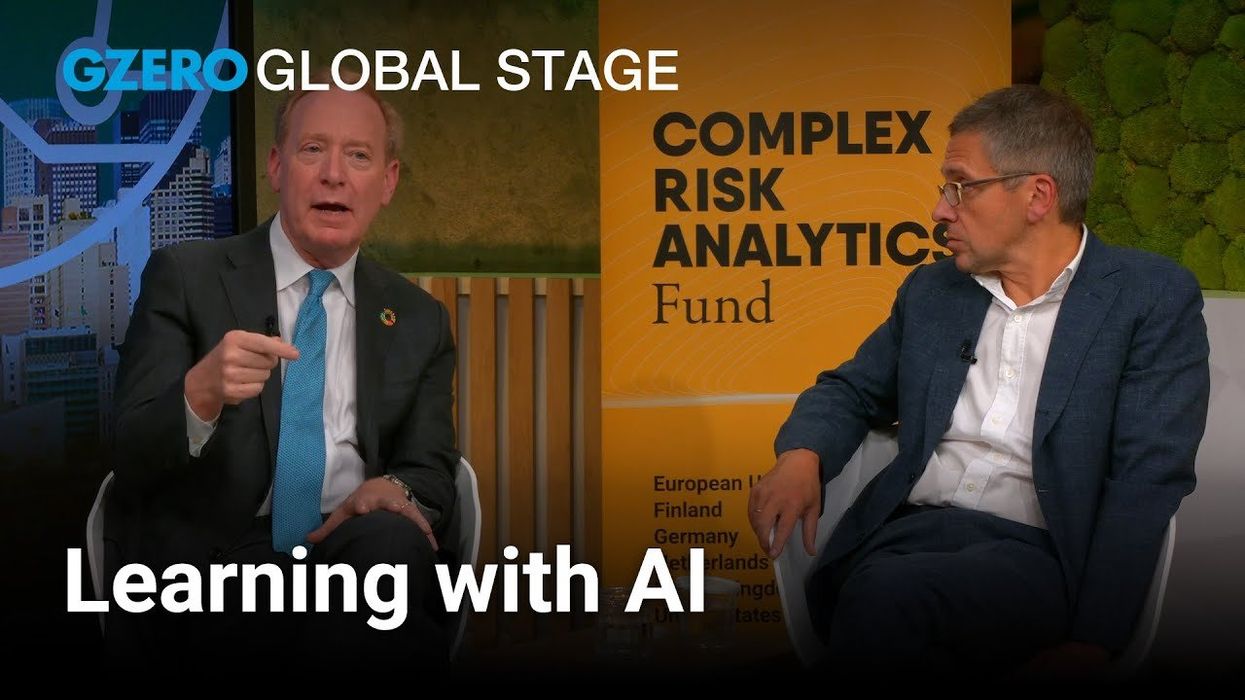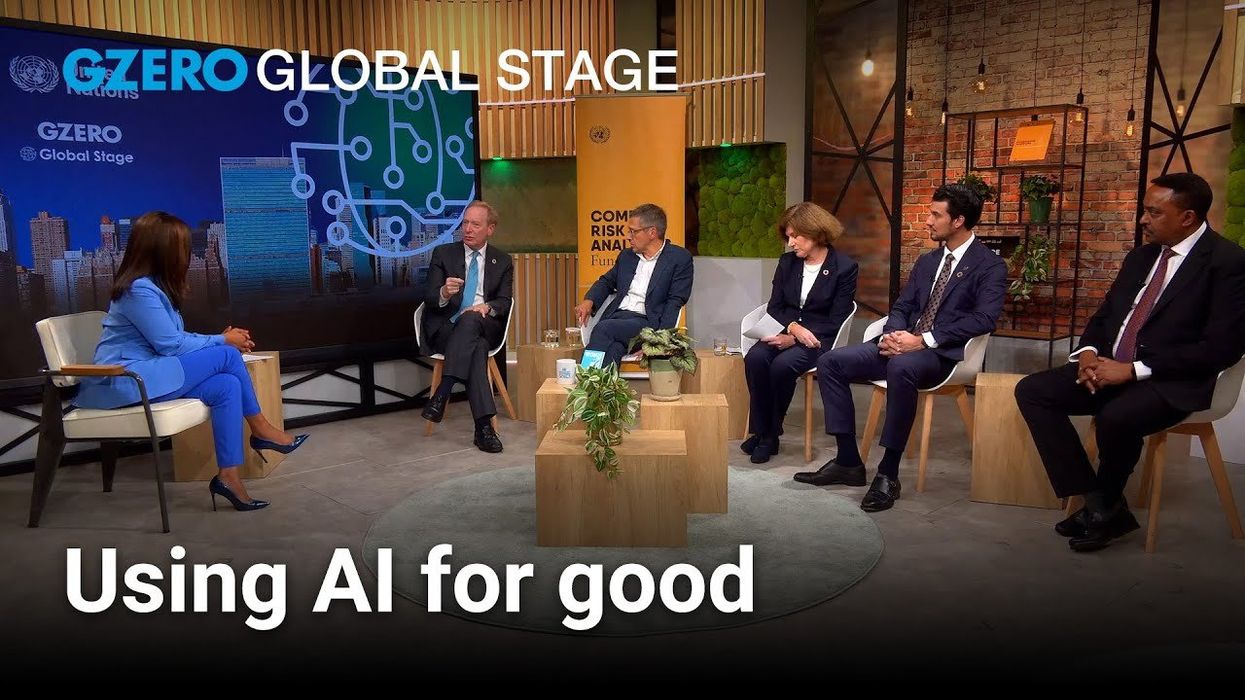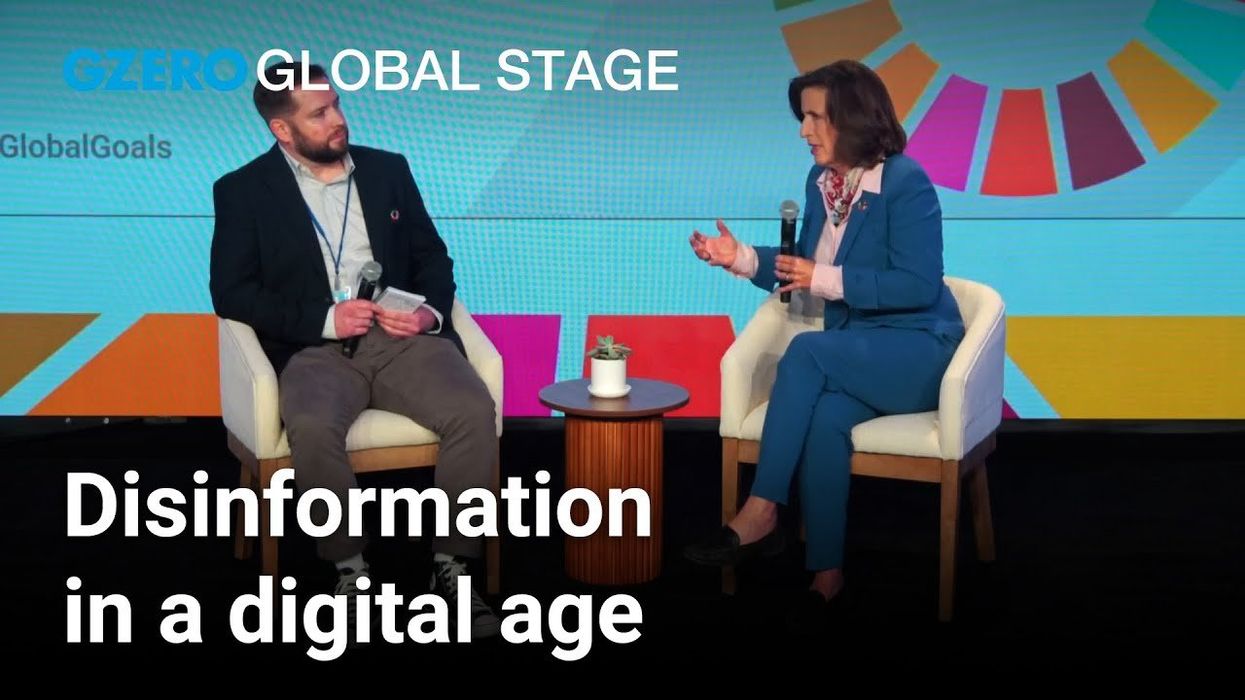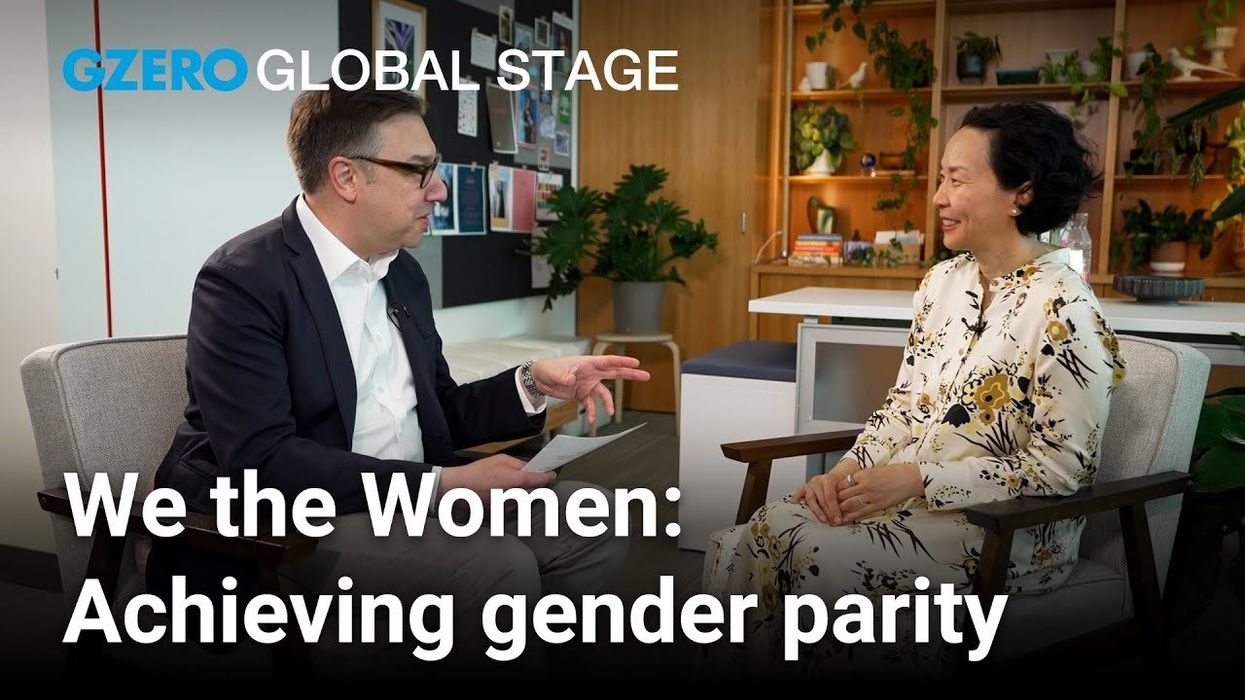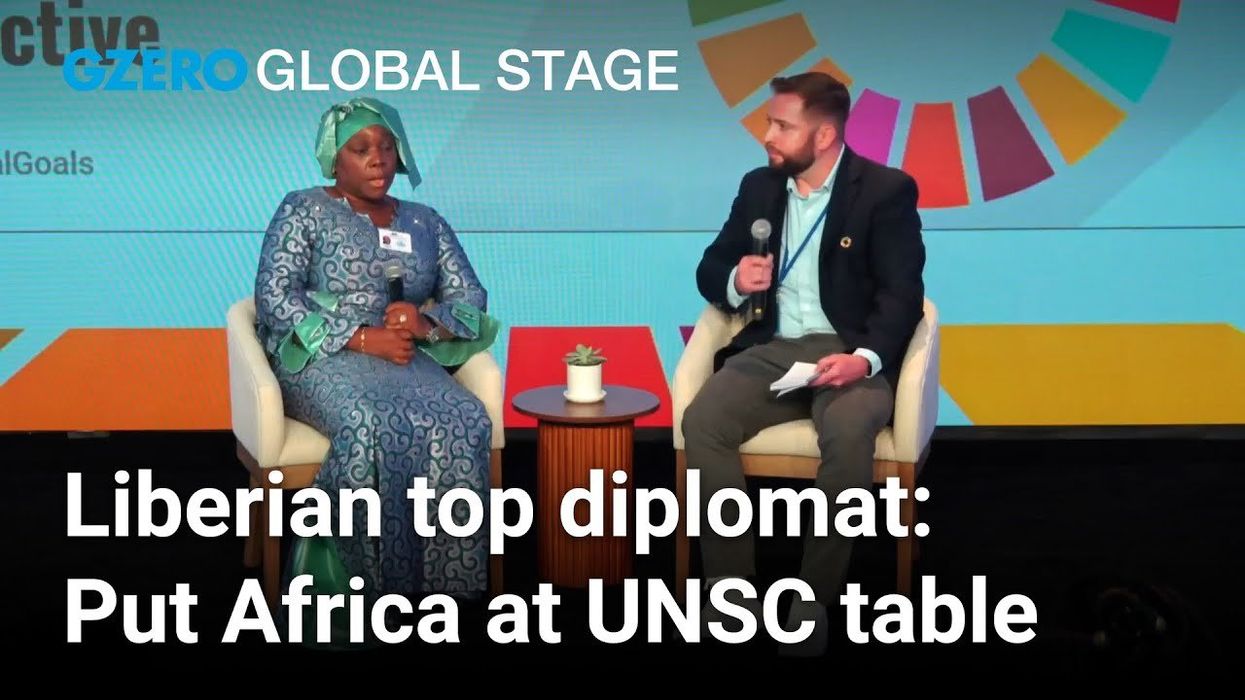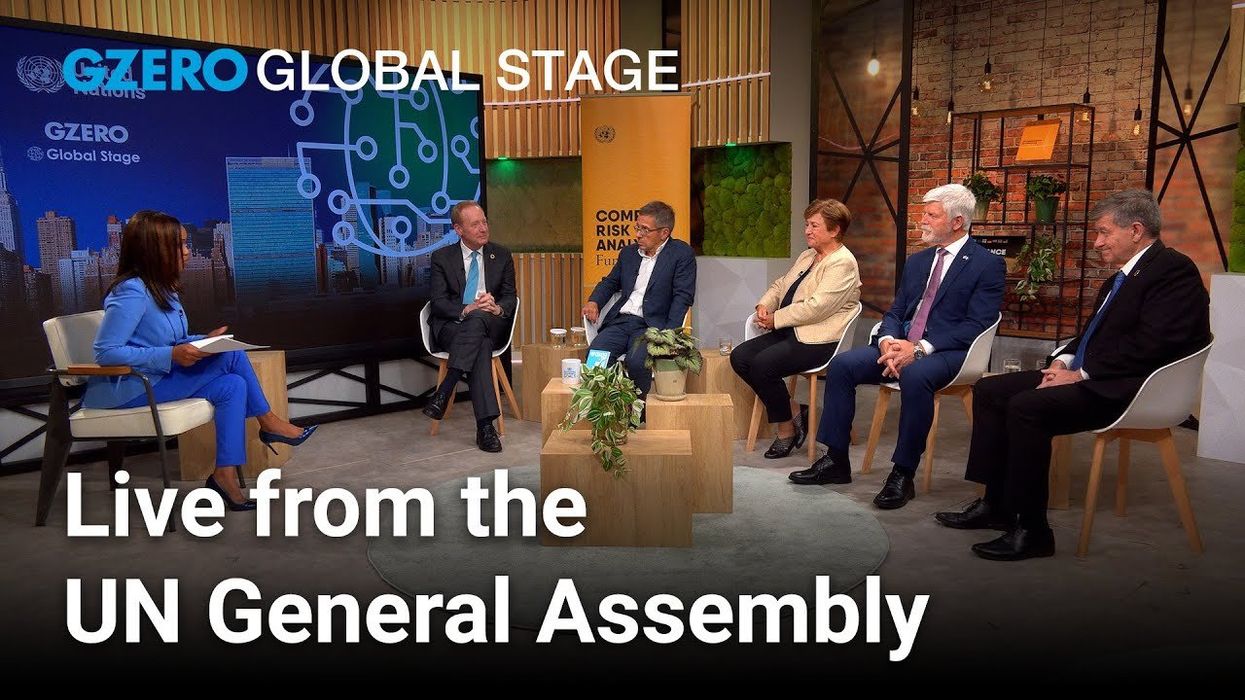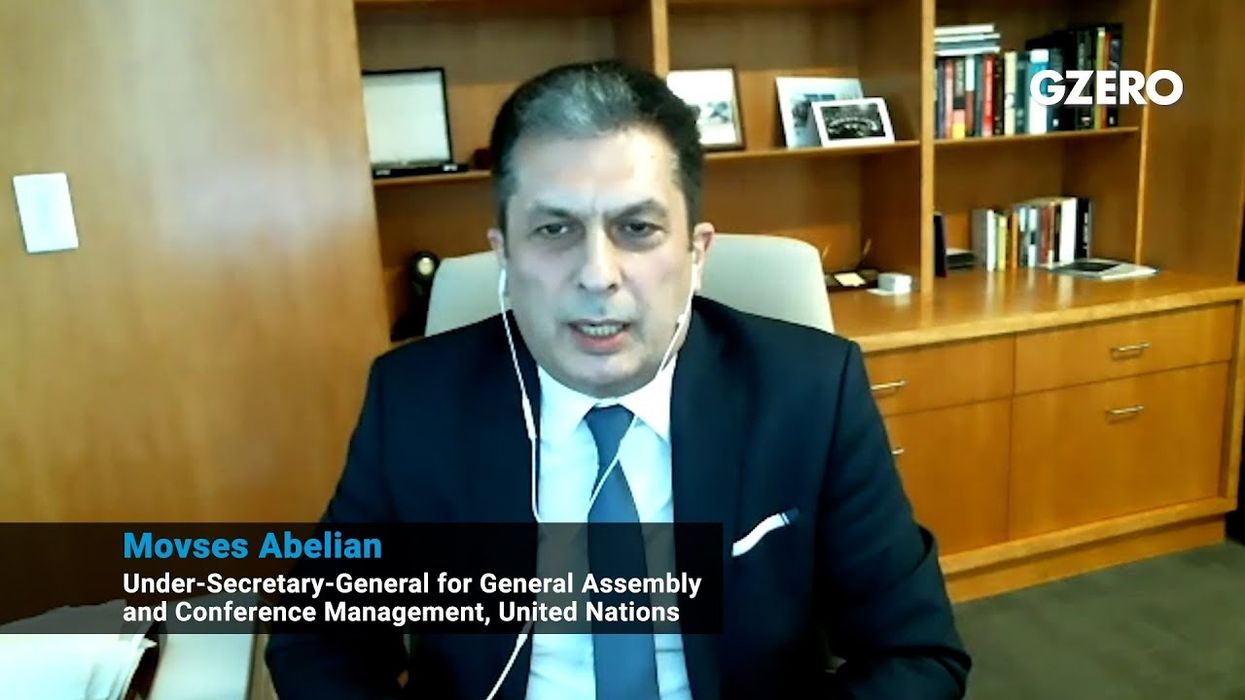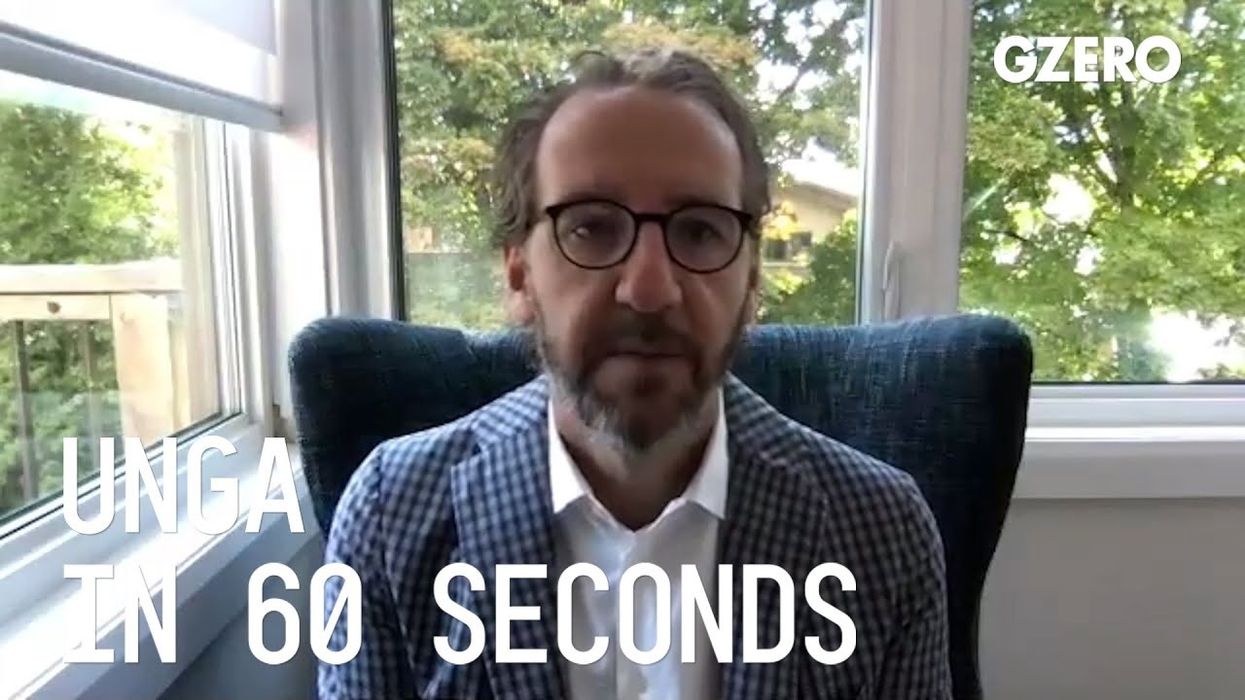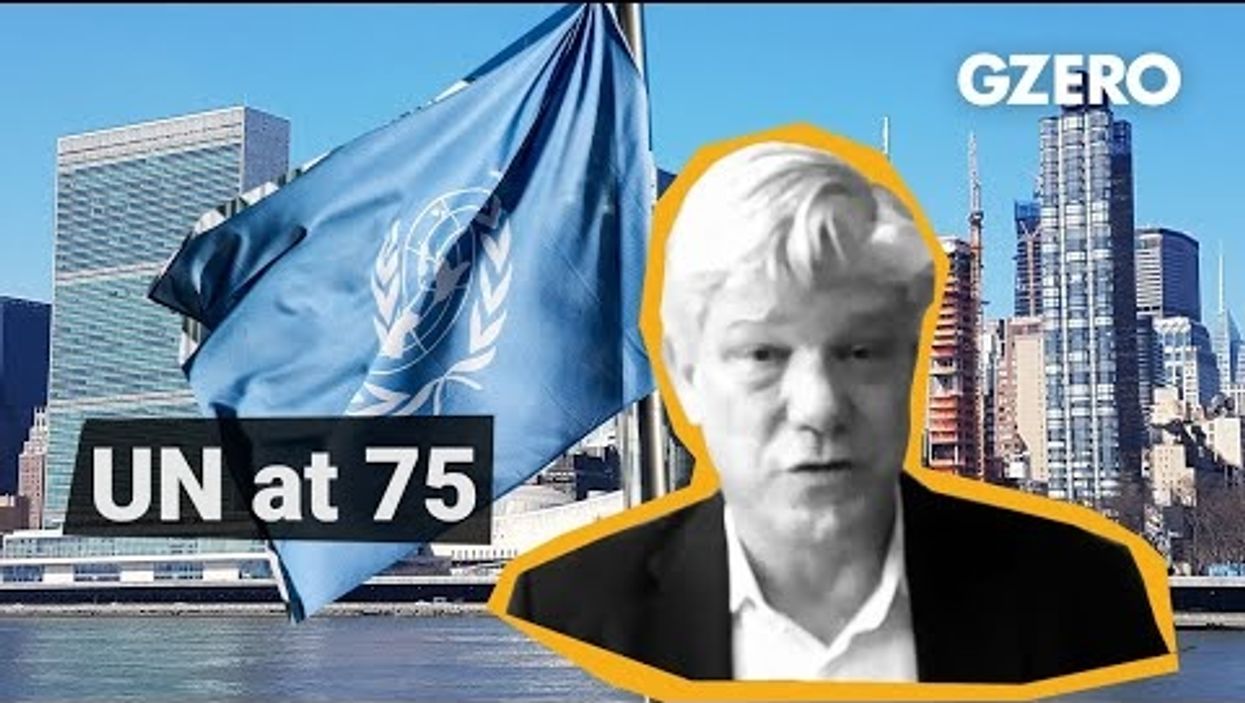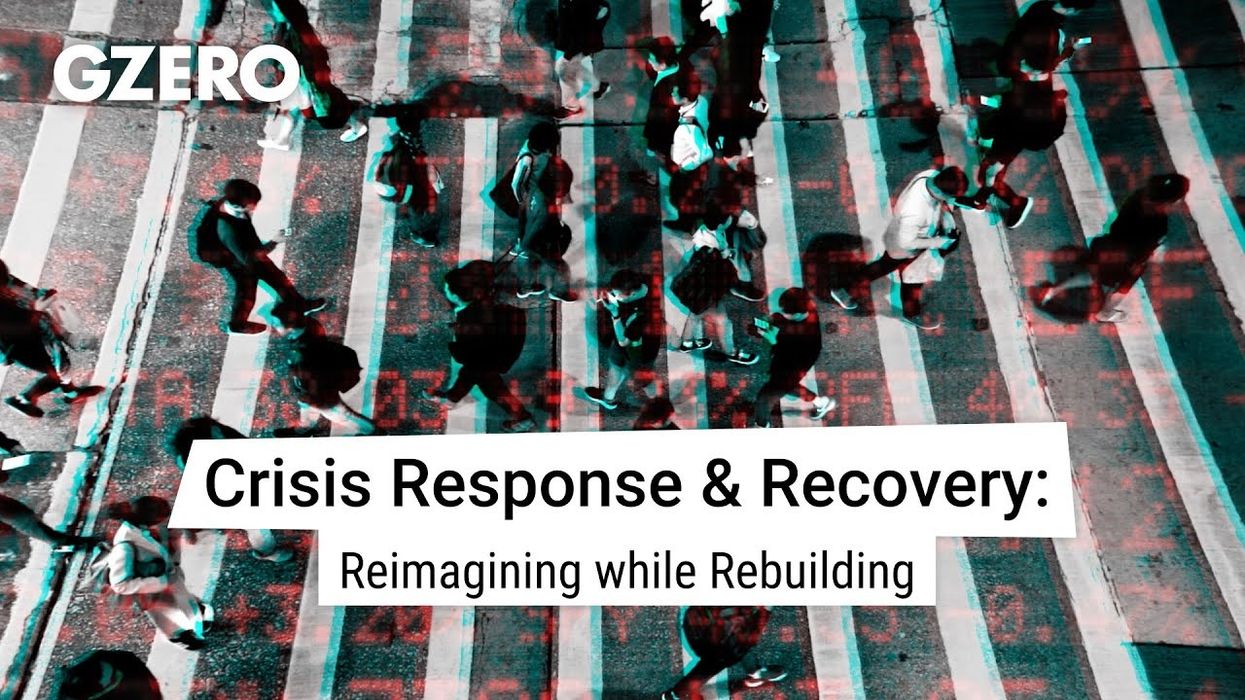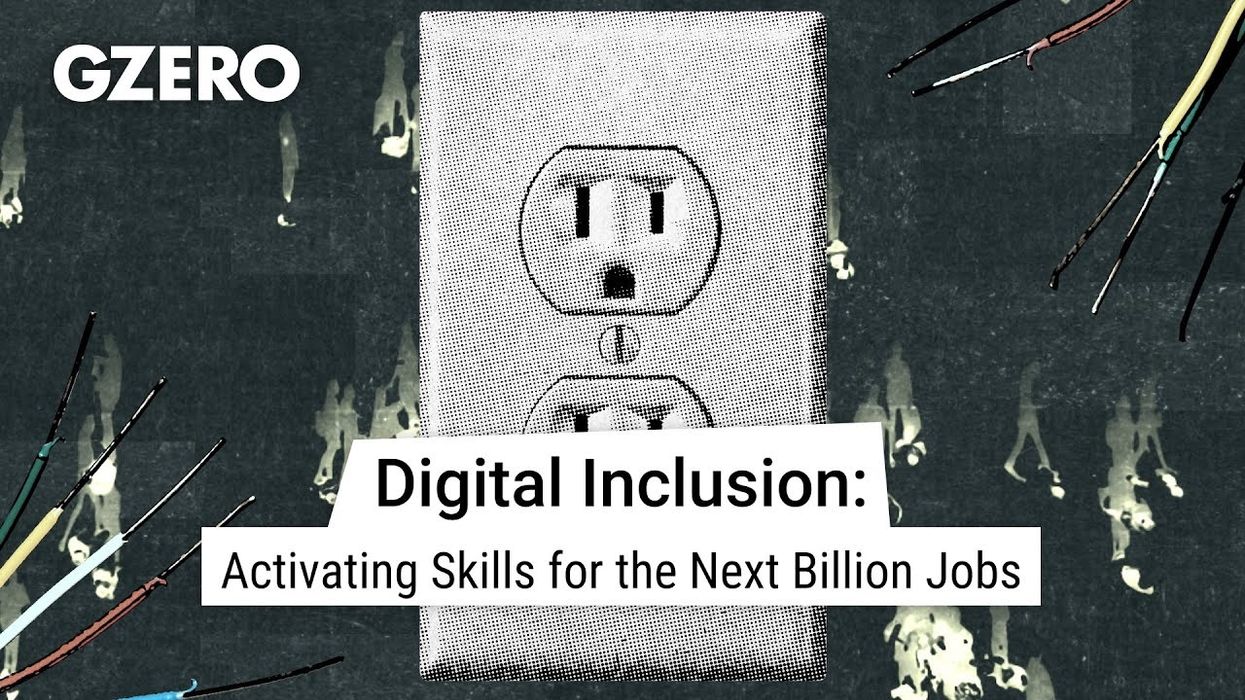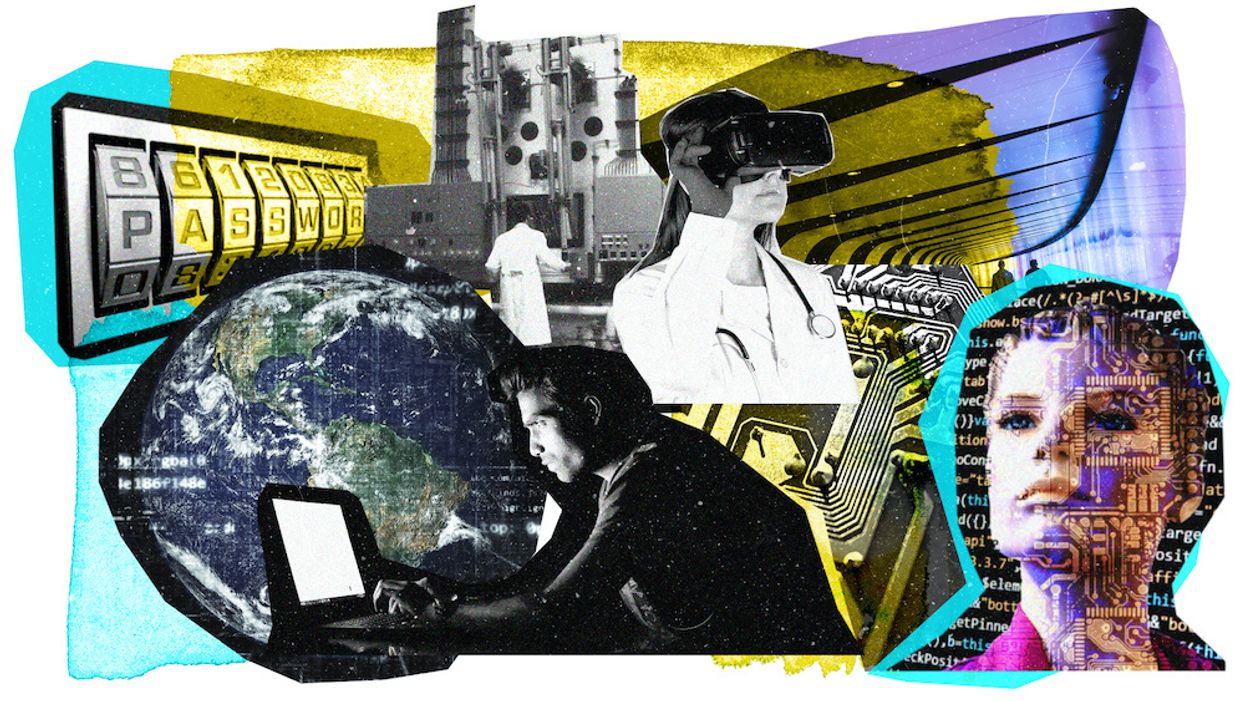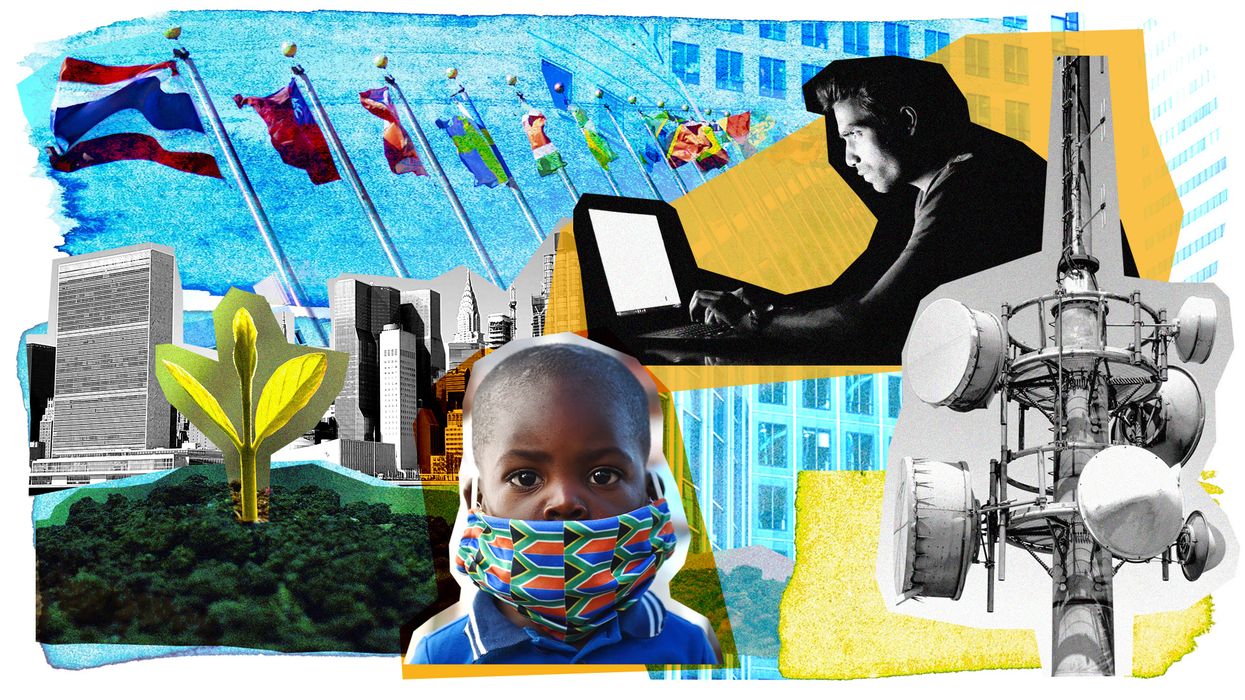VIDEOSGZERO World with Ian BremmerQuick TakePUPPET REGIMEIan ExplainsGZERO ReportsAsk IanGlobal Stage
Site Navigation
Search
Human content,
AI powered search.
Latest Stories
Sign up for GZERO Daily.
Get our latest updates and insights delivered to your inbox.
Global Stage: Live from Munich
WATCH RECORDING
UN General Assembly
The UN General Assembly takes place at United Nations headquarters in New York City every September. World leaders make speeches and diplomats convene to discuss global priorities.
Presented by
And I think the world over, people are much more aware of how much we rely on a well-functioning internet, and on connectivity to work, to go to school, to access culture, and to really understand what is happening with the pandemic and in politics or entertainment.
So, questions of who decides the rules of the road, who governs these information flows, and how do we retain trust in the digital world have only become more urgent. So, I hope that during the UN General Assembly and the UN week, there will be a lot of attention on cyberspace, the public interest, peace, and trust.
More from UN General Assembly
The unseen wounds of war
October 10, 2025
Why is public trust low, and how to fix it
October 02, 2025
Democracy 2.0: Delivering on people’s needs
October 01, 2025
Citizens’ assemblies helped Ireland move from conflict to consensus
October 01, 2025
Protect the watchdogs: Journalism, justice, & accountability
September 30, 2025
Participation = trust: Malawi’s citizens’ juries deliver democracy
September 30, 2025
How can data and AI transform humanitarian action?
September 26, 2025
The UN at 80: Reform, multilateralism & the Global South’s voice
September 26, 2025
India’s race to leverage AI by 2047
September 25, 2025
Global trade is experiencing a tectonic shift, says UNCTAD's Rebeca Grynspan
September 24, 2025
The UN at 80: Can multilateralism survive AI, war, and fragmentation?
September 24, 2025
The AI divide: Who gets left behind?
September 23, 2025
The UN at 80: Reform, cuts & the future of multilateralism
September 22, 2025
Ian Bremmer and Amina Mohammed on the promise and peril of AI
October 06, 2024
Why true AI progress is dependent on collective engagement
September 30, 2024
For AI access for all, investment is the key, says Microsoft's Brad Smith
September 28, 2024
How the UN is combating disinformation in the age of AI
September 28, 2024
The future women want
September 28, 2024
Can we use AI to secure the world's digital future?
September 25, 2024
UN official on historic virtual UNGA: “We are in business. We are there”
September 25, 2020
Why you should be (skeptically) optimistic about climate change
September 24, 2020
UN75: Born out of global crisis, the UN confronts another
September 21, 2020
Digital peace: Trust and security in cyberspace
September 13, 2020
UNGA at 75: A unique UNGA for a post-pandemic UN
September 13, 2020
GZERO Series
GZERO Daily: our free newsletter about global politics
Keep up with what’s going on around the world - and why it matters.
